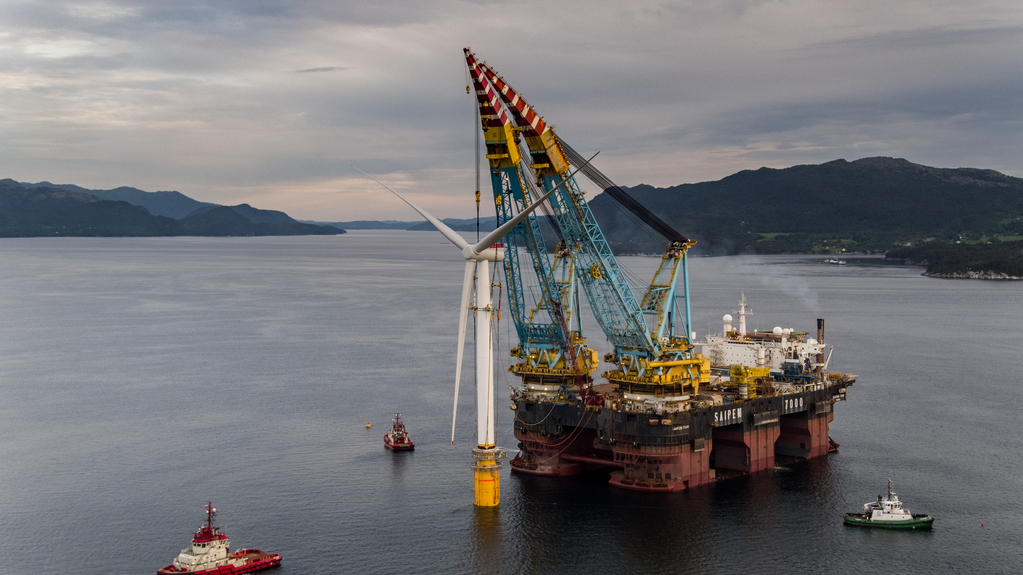Speaking at the RenewableUK Global Offshore Wind 2023 conference in London, Labour MP and shadow secretary of state for climate change and net zero, Ed Miliband, said Labour was pledging to reach 60GW of offshore wind by 2030 – 10GW more than the government’s current target.
Around 70,000 extra jobs in the onshore wind sector are needed between now and 2030, says a report by the Offshore Wind Industry Council (OWIC), with the total exceeding 100,000.
But this number depends on a workforce pipeline that requires skilled and diverse workers, and the industry needs a plan to attract and retain people for these jobs.
The OWIC report calls for an industry workforce strategy to be adopted, saying that a new approach to recruitment and retention is vital to support the upcoming work pipeline.
The existing offshore wind workforce has grown to over 32,000, up 4% compared to the end of 2021, with over 17,000 direct and almost 15,000 indirect jobs. However, the report says that another 56,000 jobs will need to be created by 2026, to reach a total of 88,509 positions.
The UK currently has 13.66GW of floating wind power, but with a target of 50GW by 2030, including 5GW of floating wind, the industry needs to develop a strategy to tackle skills shortages. Key areas which need addressing include planning and consenting, high voltage electrical technicians, engineers, turbine technicians, and digital skills like data scientists.
‘Over 100,000 offshore wind jobs by 2030 with decisive action on skills’ – Offshore Wind Industry Council Media Release
— RenewableUK (@RenewableUK) June 14, 2023
A new report by the Offshore Wind Industry Council (OWIC) released today at Global Offshore Wind #RUKGOW23 shows a significant increase in jobs in the offshore… pic.twitter.com/LiSCqCJWDO
The report also calls for a strategy to engage with STEM students to make them aware of career options in the renewable industry and ensure a continued supply of skilled workers.
Labour’s Ed Miliband told the Global Offshore Wind event: “We know that we have a big task ahead to turn the surge in renewable power into a jobs surge for Britain, and that’s why we believe an active industrial policy is so necessary. It means us as government making investments that private sector companies on their own won’t necessarily make – the obvious example of this is investment in our ports.
“We must also plan for the skilled workforce we need…so that people can see jobs in their communities being delivered, just as we see clean power being delivered, and the jobs in your industry are a byword for good, well-paid skilled workers.”
RenewableUK chief executive Dan McGrail responded to Miliband’s speech and said: “We have already seen that the UK can land major investments in offshore wind manufacturing, creating thousands of jobs across the country. But with other countries now competing with us for future investment, we need to continue to make the UK a competitive place to locate.”
@Ed_Miliband tells @RenewableUK at #GOW23 that @UKLabour’s #GBEnergy plans would be a true partnership for all UK nations to address the barriers to offshore wind and unlock the opportunities from the #CelticSea. @WelshGovernment pic.twitter.com/b6AGXginGQ
— RenewableUK Cymru (@RUKCymru) June 15, 2023
“That’s why I’m pleased to see Labour outlining a number of policies focused on increasing investment in our supply chain, and that Ed Miliband is proactively engaging with industry leaders to discuss how to deliver the 120,000 jobs which could come by 2030 as a result of their offshore wind ambitions.”
The proportion of women working in offshore wind has grown by 4.6% since 2019 to 20.6% of the workforce, with a target of 33%. However, the report notes that much more work needs to be done to achieve a better gender balance in the offshore wind workforce. Ethnic diversity has also grown from 3.8% in 2021 to 7% of the workforce now coming from non-white backgrounds, with a target of 9% by 2030. OWIC say they would like a more ambitious target of 12% by 2030.
Minister for energy security and net zero, Graham Stuart MP, said: “The 100,000 jobs in this industry by 2030 is remarkable when you think about the number and opportunities that provides… We know talent is equally shared around the country but economic opportunity isn’t always and offshore wind can play a part in that as well.”
Richard Sandford, co-chair of OWIC, said: “When I first started my career, I trained as an apprentice at a coal-fired power station at the Central Electricity Generating Board… My own journey is testament to how much power generation has changed over the past few decades. All of us – across industry and government – need to work even closer together to develop a bold new strategy that attracts all the skills we need to surge ahead as fast as possible.”
RenewableUK director of offshore wind, Jane Cooper, added: “It’s essential for us to work right across our own industry, across adjacent industries with transferrable skills, and with the next generation, to make offshore wind the most attractive career choice for people from the widest range of backgrounds and with a whole variety of different skill sets.”






